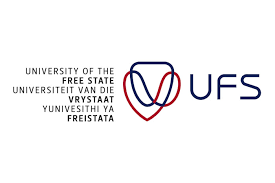University Of The Free State Prof Hosts Biorisk Management System
Outbreaks of avian influenza and SARS-CoV-2 highlight the importance of performing research and surveillance for emerging novel viruses and understanding how pathogens circulate in nature with potential for spillover from animals to humans. However, research on infectious pathogens requires knowledge and understanding of associated risks and implementation of adequate mitigation strategies for the protection of researchers and the environment.
To this end, a Biorisk Management System, which includes the identification, assessment, mitigation strategies and evaluation of biosafety and biosecurity risks associated with research activities, plays an important role when establishing research programmes. For this reason, a Biorisk Management Course for high containment facilities was recently hosted by Prof Felicity Burt from the University of the Free State (UFS) Division of Virology and SARChI Research Chair in vector-borne and zoonotic pathogens.
Biosafety important to ensure safe and secure working environment
The training was presented by Kelly Fitzpatrick-Cuoco and LouAnn Burnett from Sandia National Laboratories, Global Chemical and Biological Security, based in Albuquerque, New Mexico in the US, on behalf of the US Department of Defense Threat Reduction Agency (DTRA).
Biosafety takes into consideration containment principles, technologies and practices that are implemented to prevent unintentional exposure to pathogens, or their unintentional release. In contrast, Prof Burt says biosecurity measures prevent the unauthorised access, misuse or intentional release of pathogens. She manages the UFS Pathogen Research Laboratory – a facility for handling infectious pathogens and includes a biosafety level (BSL) 3 laboratory. The BSL 3 laboratory is designed to operate under negative pressure, and exhausted air passes through a dedicated filter system to ensure that no pathogens escape into the environment. However, Prof Burt emphasises that management systems play an integral role, in addition to infrastructure, to ensure a safe and secure working environment.
The three-day course, held between 19-22 June 2023, was offered to researchers and postgraduate students working with infectious pathogens in level 2 and 3 facilities.
Using group discussions, the facilitators led interactive conversations on risk assessment, control measures and procedures for enhancing biosafety and how to think about laboratory security and risk-based approaches to biosecurity. Each of us, unknowingly, uses risk assessments as we go about our daily lives, avoiding dodgy situations or dodgy-looking people, and the same approach can be used to ensure that we work in a safe and secure environment protecting both researchers and the environment from accidental or purposeful release of pathogens.

